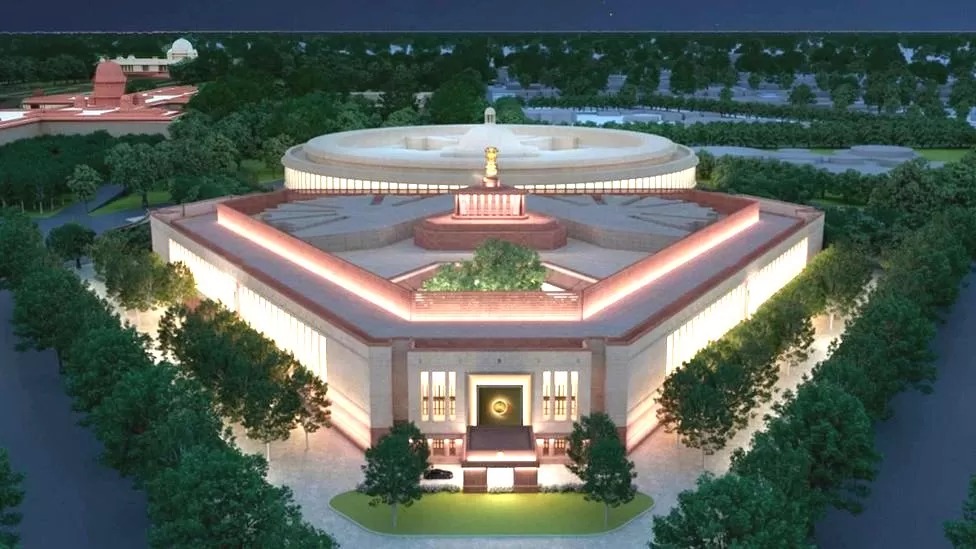India’s new parliament is set to be inaugurated this weekend amid a political row as 19 opposition parties say they will boycott the ceremony.
Prime Minister Narendra Modi will inaugurate the building on Sunday.
But opposition leaders say India’s president, the highest constitutional authority, should open the building.
Leaders of the governing Bharatiya Janata Party (BJP) have accused the opposition of “playing political games”.
On Wednesday, 19 parties – including the main opposition Congress – issued a statement announcing their “collective decision” to boycott the inauguration ceremony.
They said that while the opening was “a momentous occasion”, Mr Modi’s “decision to inaugurate the building by himself” was “a grave insult [and] a “direct assault” on India’s democracy.
The statement also mentioned that opposition MPs had been “disqualified, suspended and muted” while “controversial legislations” were passed with little debate.
“When the soul of democracy has been sucked out from the parliament, we find no value in a new building,” the parties added.
India’s Home Minister Amit Shah said that all political parties had been invited for the ceremony, and asked the opposition to not politicise the event.
“The government has requested all to be present. Everyone will act according to their own feelings,” he said in a press conference on Wednesday.
Relations between the governing BJP and most opposition parties are strained, often leading to an impasse during parliament sessions. Recently, opposition leaders protested after Congress leader Rahul Gandhi was disqualified from parliament after he was sentenced to jail in a defamation case.
Leaders from the governing National Democratic Alliance, led by the BJP, criticised the opposition statement, calling it “an egregious insult to our democracy and to their elected representatives”. They also asked the opposition to “think about the nation and not individual political gains”.
Opposition leaders have also criticised the government’s choice of date for the ceremony, which coincides with the birth anniversary of Hindutva ideologue VD Savarkar.
Not all opposition parties are on the same page on the matter – some regional parties such as the Biju Janata Dal and the YSR Congress Party will attend the ceremony.
The new parliament building – which is part of the government’s ambitious project to develop the Central Vista power corridor in capital Delhi – has been steeped in controversy from the outset.
Many opposition politicians, environmentalists and civil society groups had criticised the project for its high cost, and alleged that the government had not consulted other lawmakers and the public. They had also questioned the government’s decision to build a new parliament building instead of upgrading the old one.
The government, however, said that the new parliament was necessary as the older building was “showing signs of distress and over utilization”.
The new building – designed by HCP Design, Planning and Management and constructed by Tata Projects – has increased seating capacity and is built at an estimated cost of 9.7bn rupees ($117.1m, £94.2m).
In 2020, the Congress had also boycotted the foundation stone-laying event of the new parliament, criticising the government for holding it at a time when farmers were protesting against three controversial new laws.
The current row has generated plenty of debate in India, with some commentators saying it reflects a fractious milieu where the governing party and the opposition are unable to reach an agreement on most issues.
The Indian Express newspaper argued, in an editorial, that while the opposition had genuine grievances, it had to find a way to rise above them to mark this historic moment.
“It cannot be – it should not be – that when coming generations look at this diverse nation’s photo album, they see a parliament that is bare and monochromatic because 19 parties could not rise above their grievance, legitimate though it may have been, to embrace the larger occasion,” it said.





